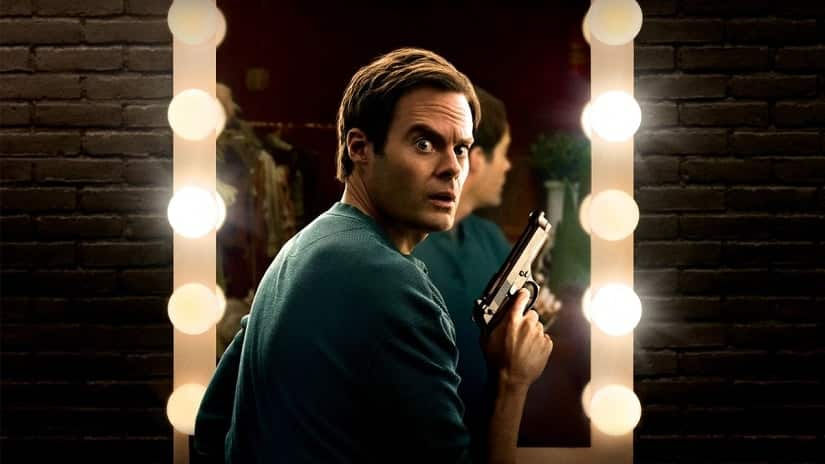Barry firmly entrenches itself among the crown jewels of HBO programming with an ambitious and filigreed second season. The first season had ended on a distressingly bloody note for the protagonist, Barry Berkman, a hitman whose hopes of leading a normal life seemed destined to be dashed by an upright police officer’s discovery of his violent past. He was forced to pull the trigger to guard the big secret that threatened to destroy his fledgling acting career, his newfound friendships and a chance at a new life. Secrets continue to haunt Barry in season two, with Fuches, his former handler, stubbornly devoted to keeping him from moving on. But Barry isn’t the only one wrestling with the ghosts of a former life. Season two deep dives into the abusive pasts of Sally, his girlfriend, and his acting coach Gene, and grows more substantial as a result. The more Barry tries to turn a new leaf, the more he finds himself entangled with the fallout of their pasts. We witness the slow erosion of his commitment to non-violence lend the show an ever darker shade. Meanwhile, the black humour that set the show’s first season apart is back, complimented by increasingly absurd situations that help craft one masterful episode after another. At least one individual episode — the fifth — appears destined to grace all-time great episodes lists and generate endless internet chatter. [caption id=“attachment_7355341” align=“alignnone” width=“825”]  Promotional still for Barry season 2. HBO[/caption] Bill Hader’s immensely empathetic and enjoyable turn as Barry Berkman/Block remains the firm foundation of the show. With the stakes getting higher in the new season, Hader responds aptly, taking things up a notch from his last year’s Emmy-winning performance. Henry Winkler (Gene) and Sarah Goldberg (Sally) grow stronger owing to the new material from their past lives. Goldberg and Hader’s theatrical rehearsals and eventual performance offer some of the most moving stretches of the show. Their relationship’s dynamics also provide Hader and co-writer Alec Berg with the opportunity to venture into profounder territories. The writers use it to explore the uneasy and difficult relationship between life, memory and art, while taking one shot after another at Hollywood’s superficial systems. It seems like an incendiary combination of disparate strands to balance within the bounds of a 240 minute long season. But their vaulting ambition is served well by a superb cast and sub-plots that end up providing some of the most memorable moments of the show. The direction is consistent throughout, with Hader himself helming the more inspired episodes. A special mention for Anthony Carrigan’s hilarious turn as NoHoHank at this juncture. He somehow manages to make his character of an impossibly polite, gay Chechen gangster who wants to get rid of a rival in love absolutely convincing. Within the gathering darkness of the overall show, he often remains the solitary bright spark, handling his responsibility with near effortless aplomb. It is a joyously rewarding performance, one that deserves wider acclaim. The whole object of the show is to gradually transform Barry from the human icebox that Gene calls him, to a more well-rounded human being. The second season continues to draw its funniest moments from a slew of awkward conversations. Barry’s awkwardness in the face of what appears normal to everyone else remains at the centre of it all. He’s a man who found his vocation — killing — during the war in Afghanistan, in addition to discovering a sense of fraternity and community for the first time in his life. Emotionally inchoate, convinced he is capable of nothing else, he’s given a new lease of life by theatre, only to be reminded repeatedly that his past won’t allow him that luxury. Hader embodies the pathetic irony of this character with a preternatural comic grace, winning the viewer over without failing to remind them of the danger our sympathy poses for everyone around him. The show successfully invites the audience to empathise with almost all its characters, including Fuches, whose worst crimes sometimes appear to have been motivated by the threat of a failing friendship. Barry never fails to remind you of the gravity of those crimes nonetheless. With all the killing to go around in the show, it always finds a way to be critical of the violence and its perpetrators, thereby managing to elide comparisons with Hollywood, which it censures throughout. The story appears age old. Will Barry get a second chance in life? Will Gene, Sally and everyone else who’re looking for ways to come to terms with the past, now that they’ve finally summoned the courage to confront it in their own separate ways? Do people change or are they doomed to remain the same? Barry is in essence a comedy about the fundamental tragedy of our lives, our often failing attempts to change it. The show has a bittersweet relationship with hope. But it is never false. Like Sally, we might often choose to lie about our past in order to come to terms with it. But if we create something beautiful out of it in the process, it can make a difference in someone else’s life. That’s probably the truth Barry is destined to grasp at some point. But it is definitely the fundamental basis of art. Rating: 4.25/5
Bill Hader’s immensely empathetic and enjoyable turn as Barry Berkman/Block remains the firm foundation of the show
Advertisement
End of Article


)
)
)
)
)
)
)
)
)



